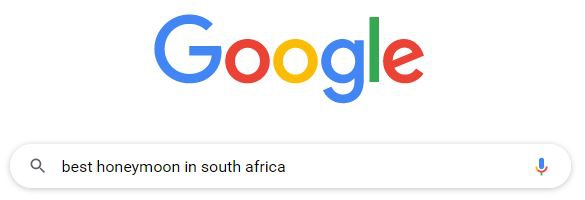
SEO Keywords
SEO indexing happens according to keywords found on your website. Your potential client may be searching for “Best Honeymoon Safari in South Africa” and your goal is to make sure that the search engine has indexed your website for these words.
 The search sentence in this example contains quite a few words that are key to indicate what this person is looking for, thus the term “keywords”. The first keyword is “honeymoon”, the second one is “safari”, and the third one is “South Africa”. For this example, we will focus on the SEO keyword “honeymoon”.
The search sentence in this example contains quite a few words that are key to indicate what this person is looking for, thus the term “keywords”. The first keyword is “honeymoon”, the second one is “safari”, and the third one is “South Africa”. For this example, we will focus on the SEO keyword “honeymoon”.
Where should you add keywords when you are implementing SEO?
Start by installing an SEO widget (like Yoast) to your website’s backend. Then add your desired keyword to the following areas as indicated on your SEO widget:
Now that you know how to implement your keywords when you are optimising your tourism website for SEO, you may wonder:
How do I know which keywords to use when I optimise for SEO?
To solve this problem, you can go directly to Google Keyword Planner or Semrush. These are extremely useful tools, which help you to select the most relevant keywords among the list of possible terms available to describe your tourism product.
For example, if you type in your keyword “honeymoon” into the Google Keyword Planner, you will get results on various relating keyword options. You may find that “honeymoon safari” gets 1200 search results on Google from South Africa every month. But the keywords “Africa honeymoon” gets 3400 search results on Google from the UK every month. Based on these results, and knowing the location of your ideal target market, you can then select which keyword combination you want to focus on when implementing SEO for your tourism marketing.

Leave a Reply